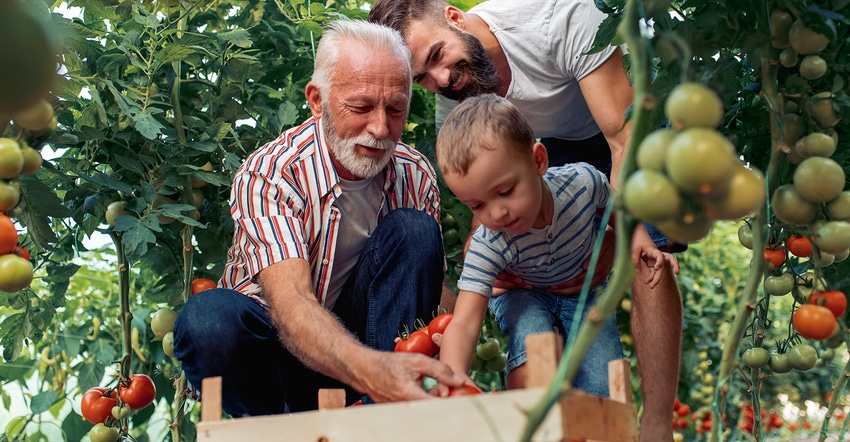Companies and farmers must connect to improve the food system
Farmers need financial stability to undertake ecologically sound agricultural practices and provide natural, healthy foods. Learn how these natural brands are revitalizing their supply chains and supporting farmers in this Natural Products Expo West 2019 conference session.

“Each of us is inextricably linked to the health of the planet. Farmers are the bases of our entire food system and we need to start heavily investing and keeping them farming.”
—Tina Owens, senior director of agriculture at Danone
Part 1: Financial support allows farmers to practice regenerative agriculture without fear of losing everything
Highlights:
Boulder County, Colorado, farmer Marcus McCauley works with neighboring farmers for the produce to make his hot sauces, which Whole Foods Market now stocks.
The average U.S. farmer is losing money, even as others in the food supply chain profit. Danone, the largest U.S. yogurt maker, contracts with dairy farmers to ensure they make a profit and enjoy long-term stability.
“What we get from them in return is the ability to work … on programs like regenerative agriculture; they can be receptive to this because we’ve taken away that instability,” says Tina Owens, senior director of agriculture at Danone.
-----
Part 2: Infrastructure must support small farms, rural communities and healthy practices
Highlights:
“What we discovered a long time ago is that we don’t really have a food system left in this country,” says Alan Lewis, the “supply chain guy” for Natural Grocers by Vitamin Cottage.
Through education, natural retailers can rally their customers to support regenerative agriculture through their purchases—even if those products cost slightly more, Lewis says.
Farmers and retailers, working together, can convince lawmakers to enact laws and policies to support regenerative agriculture such as on-site poultry processing, Lewis and farmer Marcus McCauley share.
Danone also reaches out to the farmers who supply feed for the dairy cows, building a profitability model and drawing them toward regenerative agriculture, Tina Owens says.
-----
Part 3: The lack of infrastructure opens the door to organic imports and keeps prices down for U.S. farmers
Highlights:
Not having a system for getting organic goods to market is the biggest challenge to growing the industry in the United States, says Alex Heilman, director of sales at Mercaris.
The U.S. is a net exporter of all crops and commodities except organic. “It’s the only space where we’re a net importer of everything,” Heilman says.
“Organic [certification] is certainly under threat by the larger corporations that have gone into it and want to standardize—let’s say dumb down, because I have an opinion about it—and make it all easier,” Natural Grocers’ Alan Lewis says.
This session—Building Bridges Between Farmers and Brands—Infrastructure to Meet Brand & Producer Supply Needs—was recorded at Natural Products Expo West 2019.
About the Author(s)
You May Also Like




